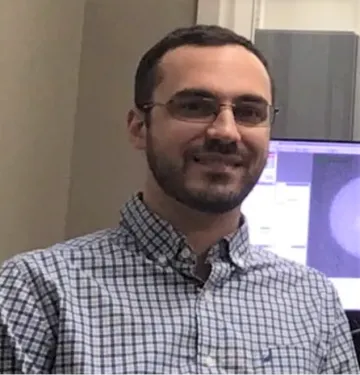When

Presenter:
Dr. Ben Orlando
Assistant Professor, Department of Biochemistry and Molecular Biology, Michigan State University
Abstract:
A variety of antimicrobial peptides target the essential process of peptidoglycan synthesis in Gram-positive bacteria. These antimicrobial peptides regulate the dynamics of microbial communities and are also of clinical importance as exemplified by peptides such as bacitracin, vancomycin, and daptomycin. Gram-positive bacteria have evolved specialized antimicrobial peptide sensing and resistance machinery known as Bce modules. These modules are membrane protein complexes that consist of an unusual Bce-type ABC transporter and an intramembrane sensing two-component system. The ABC transporter and histidine kinase components of a Bce module physically interact within the lipid bilayer, and work in tandem to sense and resist antimicrobial peptides that bind to lipid intermediates of peptidoglycan synthesis.
In this seminar I will highlight recent structural and functional work where we provided the first structural snapshots of the membrane components of a Bce module from Bacillus subtillis. Cryo-EM structures of the BceAB transporter both in isolation and in complex with the histidine kinase BceS were captured in various conformational states induced by nucleotide binding. Together these structures illuminate the overall architecture and conformational switches that enable Bce modules to sense and resist antimicrobial peptides at the Gram-positive cell surface. Accompanying biochemical data demonstrate how the individual membrane protein components of the complex exert enzymatic control over one-another to create a tightly regulated enzymatic system. In conclusion, the structural analysis of Bce modules offers insight into one of the many sophisticated strategies employed by bacteria for survival in challenging conditions. By peering into the molecular intricacies of antimicrobial peptide sensing and resistance we are developing a deeper appreciation of the remarkable mechanisms that underlie microbial resilience.
Hosted By:
Dr. Thomas Tomasiak






